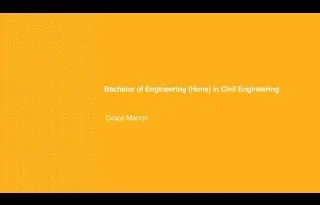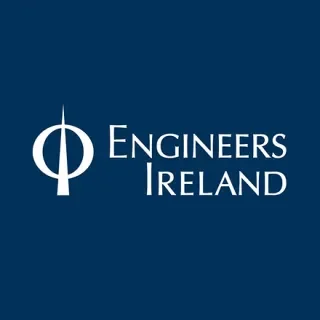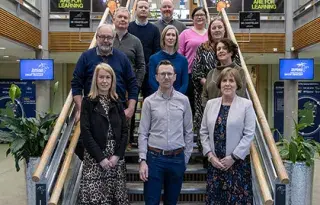BEng (Hons) in Engineering (Common Entry)

Search to find a different course
Course Overview
This course has a common first-year entry stage that allows students to experience different disciplines before choosing their Civil, Mechanical or Electrical and Electronic Engineering specialisation at the end of Year 1. This course trains graduates to design engineer level, exercising problem-solving, analysis and computation skills.
Year 1 of this degree introduces the three specialities available from years 2 to 4. The modules are shared and students choose at the end of Year 1.
Honours Degree in Civil Engineering:
- Civil engineering is about protecting, creating, and improving our everyday environment. It involves the planning, designing, and constructing facilities that we require for living, industry and transport; roads, bridges, buildings, railways, airports, water supply, drainage, flood management and sustainable energy schemes such as wind farms, ocean energy or hydroelectric stations.
Honours Degree in Electrical and Electronic Engineering:
- Electrical and Electronic Engineers have a high level of analytical and design skills as is needed when working on controlling and understanding sensitive and powerful systems. Industries such as renewable energy, telecommunications, smart devices, manufacturing, Agri-Food, Pharma and Biopharma all need the skills in Electronics. The main themes are automation & control, embedded systems, energy and electrical and sensors and electronic design. Every control system is electronics-based, and so understanding electronics is understanding controls.
Honours Degree in Mechanical Engineering:
- Mechanical Engineers are essential to every industry sector, and are in huge demand by local and national industry for their problem-solving skills and versatility. Industries include product design and research, aerospace, energy, transport and materials handling, renewable systems, pharmaceuticals and the Agri-Food sector. Mechanical engineering includes manufacturing, energy transfers and decarbonising future industries.
What makes this course different
Annual Careers Fair
There is a dedicated Engineering careers fair at DkIT each year with over 30 companies seeking graduates. Graduates are very well received by local industry, with most Year 4 students securing employment before the end of their studies.
100% Graduates Employed
100% of graduates are in employment after 6 months of graduating and 100% of graduates said their degree was essential for that job role (DkIT/ HEA graduate survey).
Work Placement
In Year 3 students undertake a minimum 13-week industry work placement where they gain important contacts within the industry to help them in their future careers. Many of our graduates go back to those companies on completion of their degrees. Employers include; Mercury Engineering, Jones Engineering, Cargotec, Megalift, TSM Controls, Great Northern Distillery, and M&L Manufacturing.
Understanding the Industry
Engineering is a vast subject, encompassing many different specialities across all environments. While engineers work in many different industries, from aerospace and automotive to energy and electronics, all engineers use creativity to design solutions for the problems we face in the world today.
Career Opportunities
Demand for graduates in a wide range of engineering industries has been strong with many having job offers from both local and national companies shortly after sitting their final exams including: Combilift, Intel, Cargotec, XOcean, Suretank, Glen Dimplex, Kingspan Group, Xtratherm, MultiHog, Atkins Global, Local Authorities (Borough and County Councils), Arup, BAM Civils, Sisk, John Paul Construction.
Future Careers:
- Civil Engineer
- Electronic Engineer
- Mechanical Engineer
- Structural Engineer
- Aerospace Engineer
- Automotive Engineer
In these areas:
- Engineering
- Robotics
- Manufacturing
- Automation
- Construction
- Renewable Energy
Graduates work at



Course Delivery and Modules
A range of teaching methodologies are employed such as practical laboratory exercises, tutorials delivered in small groups, site visits, design and build exercises, and online content to support class learning. All material is delivered from a basic to an advanced standard over the course duration. Class examples, assignments, and projects are industry-relevant and teamwork is an important feature.
Semester 1
- Computing for Engineering
- Engineering Maths 1
- Engineering Professional Practice 1
- Engineering Science
- Materials Science
- Statics
Semester 2
- Dynamics
- Electrical and electronic principals
- Engineering CAD
- Engineering mathematics 2
- Engineering professional practice 2
Themes:
- Design & CAD
- Energy Systems, Fluids & Automation
- Mechanics of Machines & Structures
- Materials & Manufacturing Technology
- Management
Themes:
- Power & Energy
- Design
- Telecommunications
- Embedded Systems
- Control
- ECAD
Themes:
- Structural analysis and design
- Highways and Transportation
- Geotechnical Engineering
- Environmental Engineering
- Engineering Surveying
- Materials Technology
- Design & CAD
Work placement
Placement is an important feature of the course, taking place in Year 3. The exact duration and nature of placement depend on the specialisation chosen.
The placement is assessed by DkIT lecturers to support the student and to ensure the learning experience is relevant to the Programme Learning Outcomes.
Professional Accreditations
Upon completion of this course, graduates are eligible to apply for professional membership with Engineer’s Ireland at Associate Member grade.

Education Progression
Graduates will be able to progress to Level 9 and 10 postgraduate degree courses.
MEng in Mechanical Engineering
MSc in Renewable Energy Systems
Fees and Funding
Please find information on fees and funding here.
Entry requirements
In addition to the standard entry requirements below, Maths Grade H6 or O2 is also required for Leaving Certificate or QQI applicants. A Merit in QQI Maths for STEM NFQ (5N0556) will also meet this specific Mathematics entry requirement.
Applicants from NI/UK require a GCSE Maths Grade 8/A or AS Level Grade C or A Level Grade D.
- Standard Requirements for Leaving Certificate Applicants
- Standard Requirements for UK/NI Applicants
- Standard Requirements for QQI-Further Education Applicants
Additional Maths Entry Exam at DkIT:
If you have not met the maths entry requirements for this course (but you have met the basic maths entry requirement for a level 8 programme at DkIT), you have a second chance at meeting these additional Maths Entry Requirements by sitting the DkIT additional Maths Entry Examination, held in August of each year. More details about the maths entry exam.
Recent CAO points
How to apply
Apply on CAO
All standard entry first-year applicants must apply for entry through the CAO. See Important application dates for CAO and information for specific applicant types below:
Advanced Entry & Transfer Applications
Advanced Entry is for applicants who have previous educational achievements and/or work experience and want to be considered for direct entry into year 2, 3, or 4 of a course. This includes students looking to transfer to DkIT from another Higher Education provider.
International Application (non-EU)
International Applicants (not from or living in the EU) can apply through an agent or directly to DkIT to study this course.
Ask us a Question
If you have a question about the BEng (Hons) in Engineering (Common Entry) please ask it below and we will get back to you.
Disclaimer: All module titles are subject to change and for indicative purposes only. All courses are delivered subject to demand and timetables are subject to change. Elective Module options will only run subject to student numbers. The relevant Department will determine the viability of each elective module option proceeding depending on the number of students who choose that option. Students will be offered alternative elective modules on their programme should their preferred elective option not be proceeding. Award Options for Common Entry Programmes: The relevant Department will determine the viability of each award option proceeding depending on the number of students who choose either option. If the numbers for one of the Award options exceed available places, students for this option will be selected based on Academic Merit (highest grades).




